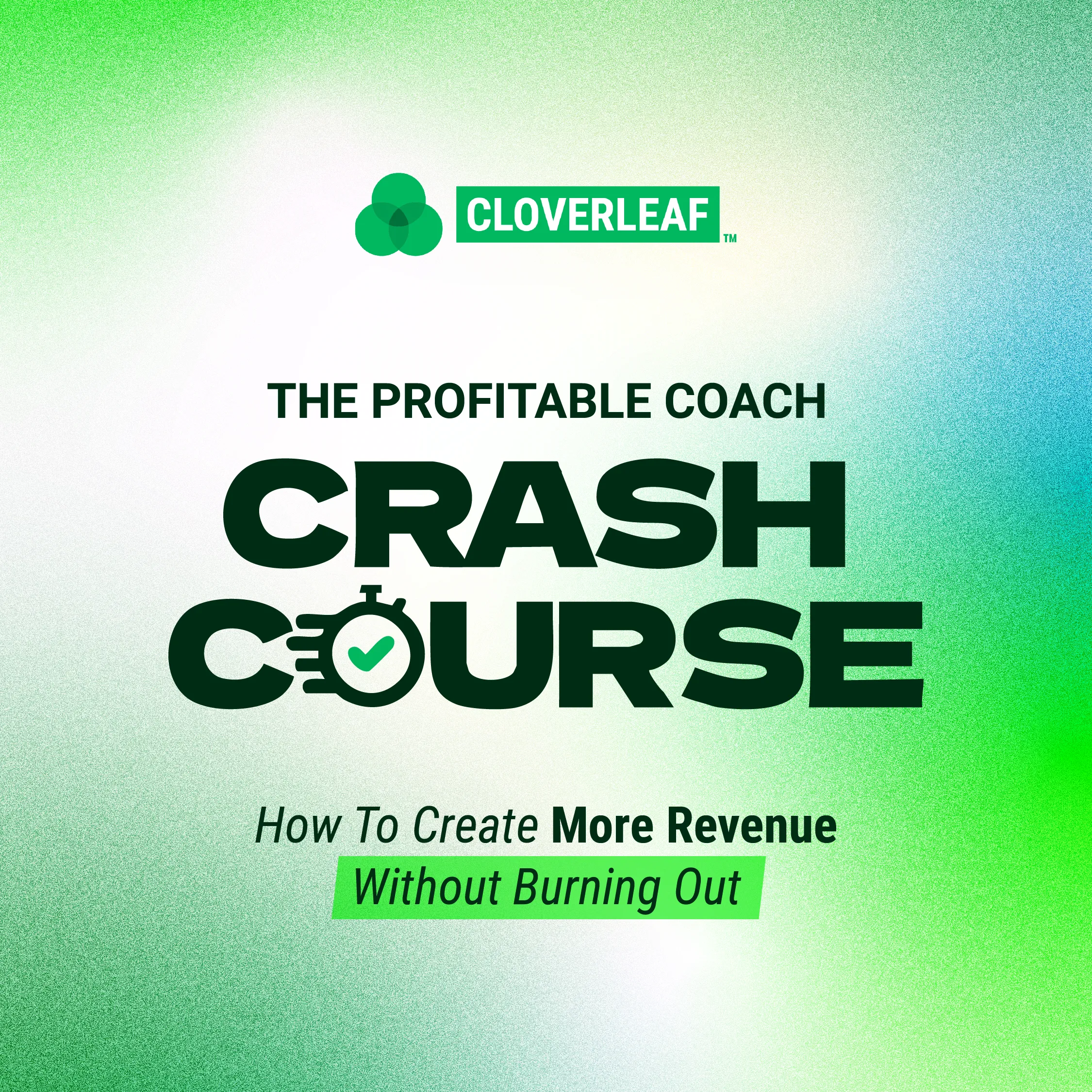If you’re a coach, consultant, or trainer, you’ve undoubtedly felt the shift. Budgets are shrinking across the board, yet the expectations from clients and organizations aren’t just holding steady—they’re soaring.
Simply delivering an engaging day in a training room or conducting a lively Zoom session is no longer sufficient. Clients now demand clear evidence of meaningful, sustained behavior change—proof that what you offer isn’t merely enjoyable, but genuinely moves the needle.
The challenge goes deeper: personalization and follow-up have become non-negotiable. Organizations are increasingly dissatisfied with generic, one-size-fits-all workshops and traditional “check-the-box” training.
They seek customized insights that resonate with each individual’s day-to-day reality and drive genuine change.
The catch? Achieving such personalized depth typically requires enormous effort, from generating extensive supplemental content to constantly providing individualized follow-ups, leaving practitioners at risk of burnout and dilution of their core value.
In this landscape, coaches urgently need scalable solutions that amplify their impact without compromising the deeply human, empathetic connections that make coaching truly transformative.
It’s time to rethink how we integrate smart automation and human expertise—crafting an approach that doesn’t just survive budget constraints but thrives, delivering sustained, measurable change that organizations crave.
Get the High Impact Coach Crash Course to see how to build a coaching business that delivers more value, serves more clients, and grows more revenue without burning you out.
The Coaching Problem No One Talks About
Most coaching and training approaches rely heavily on workshops and sessions that, while often inspiring and engaging in the moment, rarely lead to lasting behavior change.
Participants typically leave energized but without clear, actionable steps or ongoing support, causing insights and motivation to quickly fade.
Follow-up, when it exists, is often overly generic—copy-paste PDFs and mass emails no one reads, mass emails, or sporadic check-ins—that don’t address the personalized, real-time challenges participants face daily.
This lack of tailored reinforcement severely limits the sustained effectiveness of coaching and training initiatives.
Additionally, while AI-driven solutions have gained popularity, their misuse or poor implementation can inadvertently undermine trust and effectiveness.
Generic algorithms can reinforce existing negative behaviors, provide impersonal advice detached from real-world context, or prioritize corporate goals over genuine individual growth.
Without careful integration, technology risks eroding the human connection essential to meaningful coaching.
Shift your coaching business from hourly billing to predictable revenue
Ready to finally move beyond hourly limits? Let’s start building your profitable coaching business today

Monetizing Scalable Coaching: Practical Revenue Models
Coaches today are expected to deliver more value, often with fewer resources. To meet this demand without drowning in custom follow-ups, it’s critical to rethink not just delivery—but pricing.
There are several proven ways coaches can scale their impact and revenue:
- Tiered Offerings: Bundle your services into packages that combine live sessions with automated follow-up tools that extend your presence between sessions. For example, offer:
- Tier 1: Individual coaching + automated coaching access
- Tier 2: Team workshops + team dashboard access
- Tier 3: Ongoing consulting retainer + assessment-based nudges + quarterly debriefs
- Value-Based Pricing: Instead of charging by the hour, price based on the outcomes you help create—such as improved team communication, conflict resolution, or reduced turnover.
- White-Labeled Access: Frame Cloverleaf access as your own “coaching portal” included in your service, not a line item. Many coaches successfully embed these costs in their total program pricing.
Why Great Coaching Can Still Fall Short—And How AI Can Fix It
Traditional coaching workshops are often engaging and insightful—but they’re missing the critical piece: consistent, personalized follow-up to sustain the momentum.
Once the initial enthusiasm from a session fades, clients and participants return to their daily routines without clear guidance on how to apply new insights, causing even powerful learning experiences to become distant memories.
Typical follow-up methods—generic handouts, templated emails, and periodic check-ins—fall short because they fail to speak directly to the specific context of each individual.
Coaches end up spending valuable time and energy creating job aids, video content, or reminders that still feel disconnected from the nuanced challenges their clients face every day.
AI solutions have emerged as potential fixes, promising scale and efficiency, but many of these tools rely heavily on generic, surface-level suggestions.
Without proper contextual understanding, AI-generated advice can feel impersonal or even misguided, reinforcing negative patterns rather than breaking them. Overreliance on automation further risks diluting trust, as clients quickly sense the difference between genuine, human-centered engagement and automated messages that miss the mark.
In essence, while traditional workshops and basic AI tools might promise improvement, they rarely deliver lasting behavioral change or truly personalized insights—leaving both coaches and clients stuck in a cycle of diminishing returns.
Ready to see how Cloverleaf could reinforce your coaching impact, without adding more sessions?
Take the self-guided tour and explore how automated coaching nudges, embedded insights, and assessment-backed support can help you scale your practice and stay present in your clients’ most critical moments.
👉 Take the Tour Below
A Better Way to Think About How Coaches and Trainers Can Use AI
Rather than viewing AI as a replacement for the human coach, the most effective approach positions AI as a complementary partner—an enabler that amplifies coaches’ unique expertise and human insight.
AI excels at delivering consistent, targeted nudges, or “micro-coaching” tips, precisely when and where clients need them most, without adding extra manual work for coaches.
This approach leverages automation strategically, ensuring clients regularly receive personalized, contextually relevant insights embedded seamlessly within the tools they already use—like their inbox, meeting invites, or daily team chats.
These bite-sized nudges reinforce the learning from coaching sessions or workshops, keeping essential insights alive and actionable in daily workflows.
Critically, AI’s strength lies in consistency and scalability, freeing human coaches to focus their energy on deeper, high-value interactions that require empathy, judgment, and nuanced understanding.
Coaches provide depth, personalized guidance, and emotional intelligence—elements AI cannot replicate. Together, the combination of automation for continuous reinforcement and human coaching for personal depth creates a powerful synergy that drives genuine, sustainable behavioral change.
Implementing a Balanced Human-AI Coaching Model
1. Identify High-Impact Opportunities for Automation
Effective integration of AI begins by clearly pinpointing areas in coaching workflows where automation naturally excels. These include:
- Routine reminders and nudges to reinforce session insights and keep new behaviors top of mind.
- Follow-up coaching questions and reflective prompts that encourage daily self-awareness and application of learned skills.
- Real-time actionable insights seamlessly delivered within daily tools to ensure insights aren’t buried in reports but remain immediately accessible.
2. Leverage Validated Assessment Data
Personalization is key. Rather than relying on generic advice, harness AI to create tailored coaching insights by using validated personality assessments. This approach ensures:
- Contextual relevance, with AI-driven tips tailored specifically to individuals’ unique behavioral patterns, communication styles, and developmental goals.
- Alignment with individual objectives and team dynamics, fostering an environment where coaching insights resonate personally and immediately.
3. Maintain Human Connection at Critical Moments
Clearly delineate the critical junctures where only a coach’s lived experience, intuition, and emotional intelligence can drive meaningful transformation. AI complements—but never replaces—this human touch. These irreplaceable moments often include:
- Conflict resolution, values misalignment, and team dysfunction, where subtle emotional undercurrents and real-time adaptation are essential.
- Emotionally charged or difficult feedback conversations, where trust, tone, and timing deeply shape how messages are received and integrated.
These are not excuses for automation—they are opportunities for deep presence and insight.
However, automation excels at reinforcement, not resolution. Use AI to deliver personalized nudges, reflective prompts, and context-specific coaching tips that extend your impact between sessions.
This approach allows coaches to scale insight without sacrificing connection, embedding the lessons from human moments into daily behavior without the need for manual follow-up.
The Hybrid Coaching Experience: A Three-Part Framework
I outlines a powerful, scalable approach to modern coaching that integrates Cloverleaf’s automation without sacrificing the coach-client relationship:
Personal Insight
Start with assessments tools that help individuals understand themselves—personality, communication style, team role, and blind spots.
Coaching the Team Dynamic
Use tools like the team dashboard and comparison views (e.g., Enneagram conflict responses) to uncover friction points and improve team interaction patterns.
Sustaining Momentum
Reinforce learning with ongoing coaching cues, embedded in routines, not buried in notes to keep coaching active between sessions and long after a workshop ends.
This framework ensures coaching is both transformational and sustainable—with human wisdom at the center and AI in support.
Scaling AI Coaching Sustainably
A core advantage of incorporating AI into coaching practices is scalability—enabling coaches to extend their reach and impact without sacrificing the quality of personalized attention. Rather than being limited by traditional one-to-one or small group interactions, automation allows coaches to engage much larger groups effectively.
By embedding continuous, personalized coaching nudges directly into daily workflows participants receive consistent, timely reinforcement without overwhelming coaches or HR teams.
These micro-coaching interactions keep insights alive and actionable, ensuring that meaningful behavioral shifts occur incrementally over time.
To achieve seamless scalability, it’s critical to integrate AI-driven coaching solutions into existing organizational platforms.
This frictionless adoption ensures minimal disruption, reduces resistance from users, and leverages familiar tools, significantly increasing user engagement and sustained adoption. This strategic integration helps coaching become a natural, ongoing part of employees’ everyday experiences, rather than an additional burden or afterthought.
How Coaches Use Cloverleaf To Integrate AI
Cloverleaf offers a uniquely integrated coaching platform designed explicitly to complement and enhance human coaching—never to replace it.
Leveraging validated personality and strengths-based assessments (such as DISC, MBTI, Enneagram, and VIA Strengths), Cloverleaf translates deep psychological insights into practical, personalized coaching nudges delivered daily.
One executive, after seeing their Cloverleaf profile, was surprised to discover that one of their top strengths was ‘Love.’ That single insight changed the way they led their team—shifting from transactional delegation to daily acts of care and clarity.
Coaching stuck. Culture shifted.
Participants receive these insights directly within the digital tools they already use ensuring consistent, contextually relevant reinforcement that effortlessly fits into their daily workflow.
Real-world examples:
Personalized Micro-Coaching:
Instead of generic follow-up, Cloverleaf sends personalized nudges that resonate deeply with individuals’ unique contexts. For instance, a leader struggling with conflict management receives tailored tips on how to approach challenging conversations with specific team members, creating immediate, actionable guidance.
Calendar Integration for Real-Time Coaching:
Coaches often struggle to stay top-of-mind between sessions. Cloverleaf’s calendar integration ensures coaching insights appear precisely when most relevant—right before critical meetings, performance reviews, or one-on-one check-ins—keeping the coach’s expertise and guidance continuously present and actionable.
Human-AI Symbiosis:
Cloverleaf doesn’t replace the coach’s empathy, judgment, or intuition. Instead, it frees coaches from repetitive, manual tasks, empowering them to focus their time and attention on deeper, transformative interactions. Coaches use Cloverleaf’s insights as conversation starters or reflective prompts, deepening trust and strengthening relationships.
By enhancing rather than substituting the human element, Cloverleaf preserves the essential human connection at the heart of impactful coaching, ensuring technology serves human expertise rather than attempting to replace it.
The Future of Coaching Includes Human-Centric AI
The next evolution of coaching won’t choose between technology and human expertise—it will seamlessly blend the best of both.
Successful coaching practices of the future will integrate AI’s scalable, consistent nudges with the irreplaceable human elements of empathy, intuition, and personal connection.
Coaches will leverage automation not as a replacement, but as a tool to enhance their impact, focusing more time and energy on meaningful conversations, deep reflection, and transformative breakthroughs.
Organizations ready to embrace this approach should rethink how they currently integrate AI into coaching.
Rather than merely automating processes, they can follow Cloverleaf’s model—using intelligent, context-driven automation to augment the coach’s role sustainably.
By placing human-centric AI at the core of their practice, coaches and organizations can deliver lasting, measurable results without sacrificing the depth of genuine human interaction.
🙋 FAQ
Q: How do I balance AI-driven coaching with personal human interaction?
A: AI tools like Cloverleaf automate reinforcement—nudges, tips, reminders—so you can spend more time on what matters most: conflict resolution, team dynamics, and trust-building. Think of it as buying back your time, not replacing your presence.
Q: What does a scalable coaching business model actually look like?
A: There are a couple levers coaches can pull to scale their coaching. Embedding assessment access into your services (rather than charging per report), offering team-wide access, and structuring recurring value through ongoing micro-coaching instead of only one-time workshops.
Q: Will clients feel less connected if I automate follow-up?
A: Actually, the opposite often happens. Clients receive personalized, actionable insights via daily tips—delivered in their email or Slack—which reinforces the coaching they’ve already received. This keeps you top of mind without requiring more hours.
Q: Can I integrate this into my existing team workshops or coaching framework?
A: Yes. You can pair Cloverleaf with whatever content you’re already delivering—like conflict training or leadership coaching—and using features like team dashboards and strength insights to contextualize your teachings.
Q: What’s the best way to extend impact between sessions without adding more content creation?
A: Leverage Cloverleaf’s automated nudges and the coaching journal. Clients can reflect daily on their insights, aligned with their current team challenges—without you having to build new PDFs or follow-up resources.






